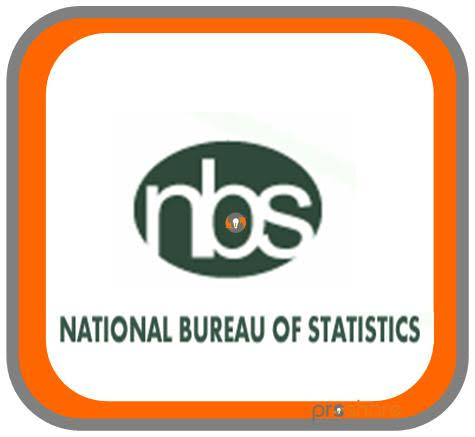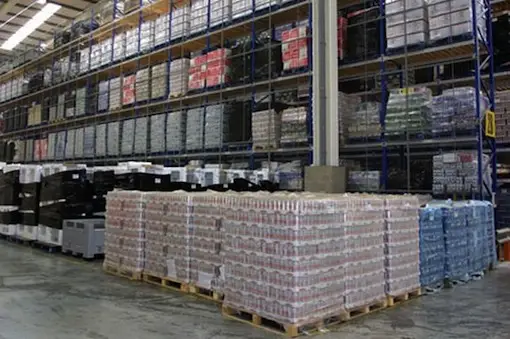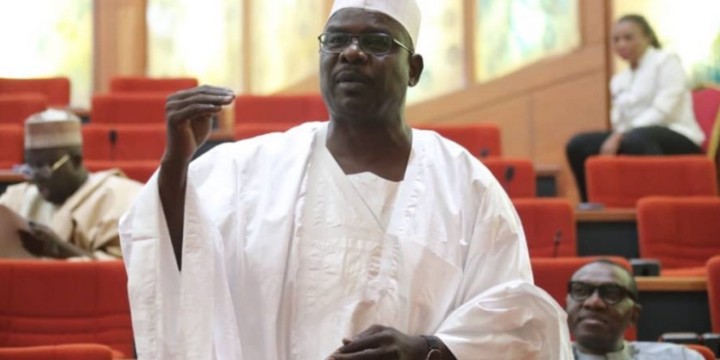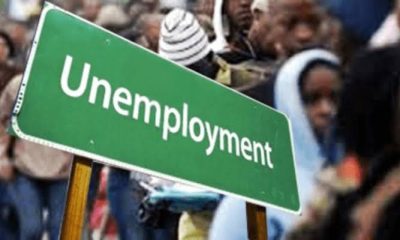National
Nigeria’s unemployment rate drops by 4.1%, says Statistician-General

Nigeria’s unemployment rate dropped to 4.1 per cent in the first quarter of 2023 from 5.3 per cent in the fourth of 2022.
Mr Adeniran Adeyemi, the Statistician General of the Federation and Chief Executive Officer of the National Bureau of Statistics (NBS), said this on Thursday during the inauguration of the New Nigeria Labour force Survey (NLFS) in Abuja
Adeniran said that the drop in NLFS from 33.3 per cent in the Fourth quarter 2020 to its present rate was based on change in methodology adopted and not government performance.
The News Agency of Nigeria (NAN) reports that the new NLFS unveils a set of labour force indicators designed to provide unparalleled insights into the dynamics of the workforce in Nigeria.
The NLFS was conducted by the NBS in collaboration with the World Bank (WB) and the International Labour Organisation (ILO) in response to the labour market dynamics
Adeniran said “let me at this point clearly state that this methodology review has nothing to do with whitewashing the image of any government or political party.
“This process is routine for any responsible statistical office, and we have no reason to continue to ignore the adoption of new methods, when the evidence clearly indicates the need for it.
“As a national statistical office, our responsibility is to provide government and all users with accurate data for evidence-based decision making, adhering to the highest possible standards, and our commitment in this regard is unwavering.”
According to Adeniran, the new method which indicates that not less than 73 per cent of Nigerians are engaged in one form of work, recognises all forms of engagements from which individuals earn income.
He said using the new ILO definition, the survey showed that the unemployment rate for the fourth quarter of 2022 stood at 5.3 per cent and 4.1 per cent for the first quarter of 2023.
“This figure aligns perfectly with neighbouring countries around Nigeria. Ghana (3.9per cent), Niger (0.5 per cent), Chad (1.4per cent), Cameroon (4.0per cent), Togo (4.1per cent), Benin Republic (1.7per cent) amongst others.
“In responding to the shifting global landscape and the ever-changing data ecosystem, it is imperative for us to continuously adapt the way in which we collect and analyse data.
“This is to ensure that we are producing data that reflects reality and the experiences of Nigerians.
“These changes also includes a revision to the design and methodology applied in the conduct of the actual survey.
“Which is the survey that produces commonly known headline Unemployment and Underemployment rates, as well as other labour market indicators that guide policymakers, researchers, and other users,” he said.
According to him, the results indicates a scarcity of Wage-employment, as the share of those employed in Wage-employment during the reference quarters was 13.4 per cent in Q4 2022 and 11.8 per cent in Q1 2023.
Adeniran said that the working age population which was defined previously as persons aged 15-64, is now defined as persons aged 15 and above.
He said this was a very important change particularly in the Nigerian context as it recognises the labour contributions of persons above the age of 64 which was not done previously.
The NBS boss said the unemployed appeared to be the most controversial amongst the changes announced under the review.
According to him, the new standard defines the unemployed as persons within the Labour force, who within the reference period did not work for pay or profit for a minimum of 1 hour.
“In the real sense, nobody works 1 hour a week and then sits down and does nothing else when there are opportunities for more hours of work.
“The statistics show that only 7.1 per cent of those working, work between 1 – 19 hours per week. So, 1 hour is just a benchmark and nothing more than that,” he said.
The survey revealed that about three quarters of Nigerians in the working age population, 73.6 per cent in Q4 2022 and 76.7 per cent in Q1 2023 were engaged in some form of work for pay or profit in the quarters under review.
Earlier, the World Bank’s Country Director, Shubham Chaudhuri pledged the continued support of the bank to ensure a robust, regular national LFS data for the country.
Chaudhuri said a reliable data provided the government with knowledge about the nation’s welfare and ensured the right intervention and programs needed to address it’s challenges.
The Minister of Budget and Economic Planning, Abubakar Bagudu, said data was key to national planning and development.
According to Bagudu, President Bola Tinubu believes in reliable data for planning and will support anything that will lead to production of appropriate data.
“To create jobs for youths, we need this kind of data, a lot needs to be done to address the high rate of unemployment in the country. The President is desirous of reducing unemployment.
“Nigeria is one of the countries with absorptive capacity, so what we need is to provide better environment and more incentives,” he said.
While commending efforts of NBS and its partners in revising the methodology, Bagudu said the ministry would from 2024 use of the revised data more practically.
Meanwhile, the Acting CBN Governor, Mohammed Tumala said labour statistics was one of the most important inputs to economic policy and business decisions.
Tumula said labour was the most important of the factors of production and determined both the quantity and quality of utility of other factors.
While commending efforts of the NBS, he stressed the need for synergy with communication experts to ensure proper linkage and dissemination of data to the public.
Similarly, Prof. Mike Obadan, Non Executive Director and member MPC, CBN also reiterated the need for NBS to ensure robust strategy for communicating its survey findings to the public in simple language.
Headline
Job Losses, Factory Closures Loom As Unsold Goods Pile Up — MAN

AGAINST the backdrop of sustained pressure in the foreign exchange market and high cost of production, the Manufacturers Association of Nigeria, MAN has indicated that inventory of unsold goods is escalating to levels now threatening the existence of companies operating in the production sector of the economy with attendant job losses.
Findings show that as of the weekend the foreign exchange market had recorded over 254 per cent plunge in the value of the naira since flotation of the currency by the Central Bank of Nigeria (CBN) in June 2023.
Recall that the naira traded for N471 per dollar in the official I&E market on June 13, 2023 before the floatation of the currency, but exchanged for N1,665.50 to a dollar as at February 23, 2024 on the Nigerian Foreign Exchange Market (NAFEM), indicating a depreciation of more than 253.6 per cent over the eight-month period. The forex crisis is also stoking inflation, and coupled with high energy costs, purchasing power has continued plummet, stifling demand for goods.
Speaking on the impact of this development on the manufacturing sector, Director General, MAN, Segun Ajayi-Kadir, said: “There are reports that across the board, many warehouses and plants of many manufacturing firms are stockpiled with unsold goods manufactured last year. “The development is as a result of the devastating effects of the exchange rate crisis, inflation, fake and sub-standard goods, smuggling and other macro-economics challenges.”
National
Relocation Of CBN: There’ll Be Consequences If Tinubu Doesn’t Reverse – Ndume

Ali Ndume represents Borno South Senatorial District and is Chief Whip in the 10th Senate
Ndume & Seun Okin
On the relocation of some agencies of the FG to Abuja and the apprehension of the Northern elite
Ndume: It’s not just about our Northern colleagues, this is a consensus because we only have one Federal Capital and that is Abuja. All these “Lagos boys_ that are thinking that Lagos is Nigeria are just misinforming or advising the President wrongly.
The Regulators of the financial institutions are supposed to be or are in Abuja. You want them to move because they say Lagos is the commercial capital. These are one of the mistakes and I am sure Mr President will reverse it because it doesn’t work. You can’t have two capitals or is the CBN Governor going to be operating from Lagos or the headquarters of the CBN is in Lagos?
Do you now say majority of our oil is extracted from the South South, you take NNPC to South South or is it because Nigeria’s agricultural base is more in the North, you take the Ministry of Agriculture to anywhere in the North. It doesn’t work that way and that is one of the problems that is cropping up but I am very sure and confident that Mr President will look at this because he is a Nationalist and not just a Lagos man. Some of these people, I repeat, some of these people think Lagos is Nigeria. Lagos is not Nigeria, Lagos is not the headquarters of Nigeria, the headquarters of Nigeria is in Abuja.
Seun Okin: …but the CBN is saying some departments are only moving to Lagos for operational purposes
Ndume: Which operational purposes? Why was the headquarters moved from Lagos to Abuja, is it not because of the same congestion?
Seun Okin: …only some units and departments are moving…
Ndume: If you are talking about proximity and space, why not you take them to Nasarawa, Kogi or Kaduna just nearby so that you can decongest the place and I even don’t see any issue of congestion, because there is just going to be cost because they will also be running from Lagos to Abuja everytime spending more money and even exposing the workers to unnecessary risks. This is a decision that is not well-thought out and I think the President will do something about it, I am confident of that. If that does not happen, of course this is democracy, we know what to do.
Seun Okin: ..and what will that be?
Ndume: That will be when the President refuses to reverse it
Seun Okin: What will be the reaction?
Ndume: The reaction right now is don’t try to bring in the case of tribalism into it. I am not a Hausa or Fulani man but I am a Northerner and I am a Nigerian first. And we say that since the headquarters of Nigeria was moved from Lagos because of congestion and inefficiency to Abuja where it is more Central and more of no man’s land because the Gwaris and Gbagyis are the only people there. We have enough space there, CBN can rent any office or even build from scratch to increase efficiency but moving some departments to Lagos is not the best of ideas at all or even moving any agency for that matter.
Seun Okin: Is there any political undertone or ulterior motive ..?
Ndume: I don’t want to believe there is, because I know the President that much, just that those political cartels that I told you, are in the corridors of power and trying to misinform the President.
The President will take action because he is a man that listens and corrects anything.
Some of them (political cartels) think they know better than everybody but they don’t know anything.
When you don’t know Nigeria, you only know Lagos then you start doing things as if Nigeria is Lagos.
Besides, they are not doing any favour to Mr President because this could have political consequences.
Seun Okin: Really?
Ndume: Yes, I am telling you this and those guys who are just sitting in their offices trying to hang onto Mr President will not be there to amend the political mistakes or even to correct it because they only know their offices and they only know that they have brains. It’s politics.. Was it not politics that brought them to that office in the first place? If Tinubu had not won the election as the President, will the CBN Governor be where he is today?
Who brought Mr President to that office? Was it votes from Lagos that brought him to that office? No way, Lagos is in Nigeria and we will not accept this wrong decision.












